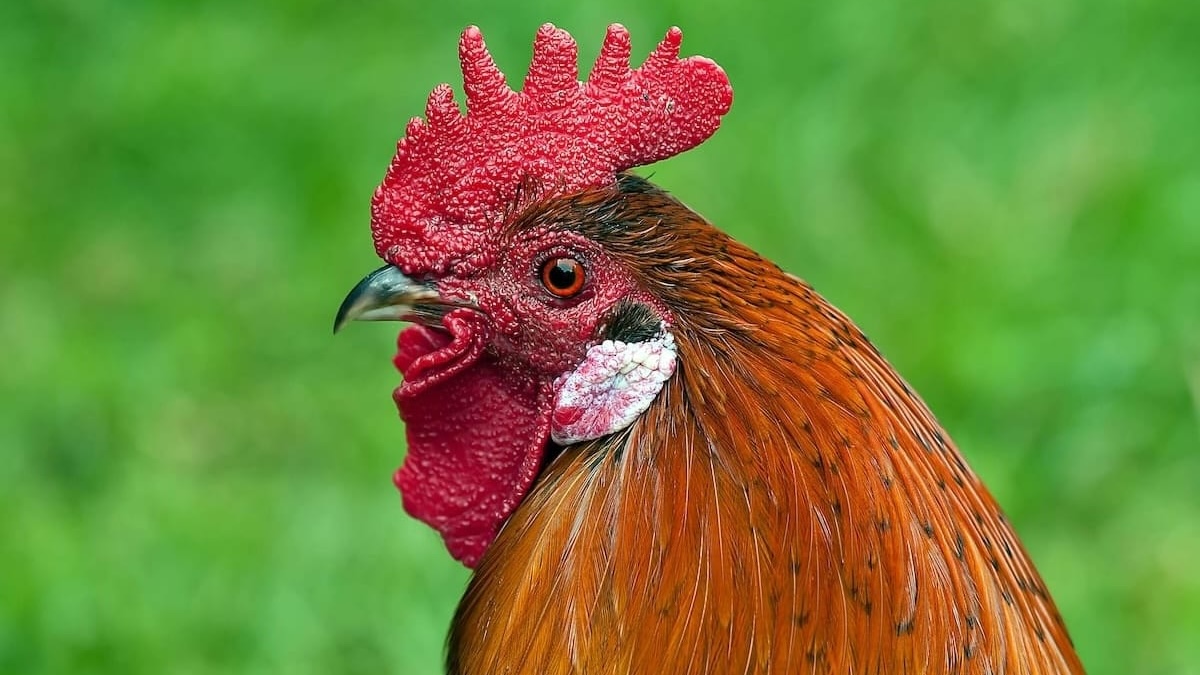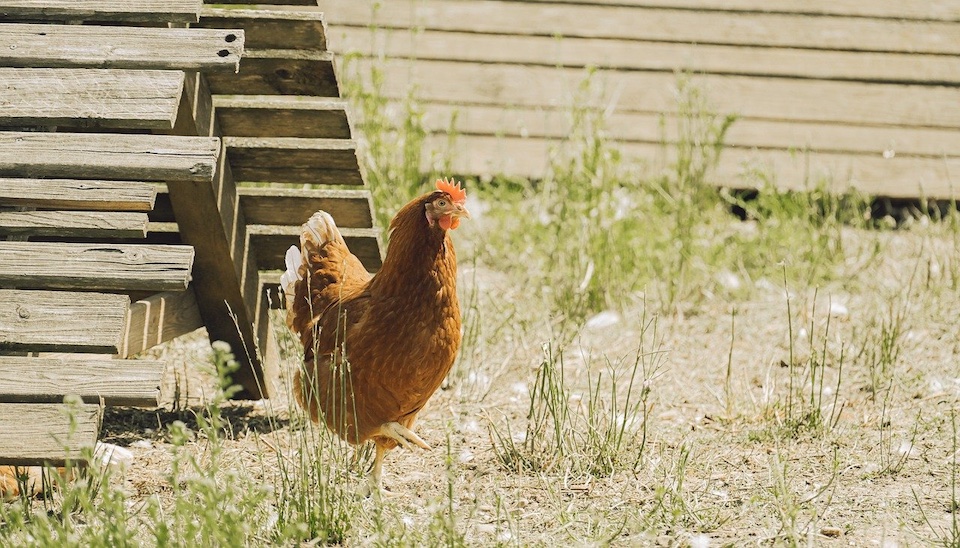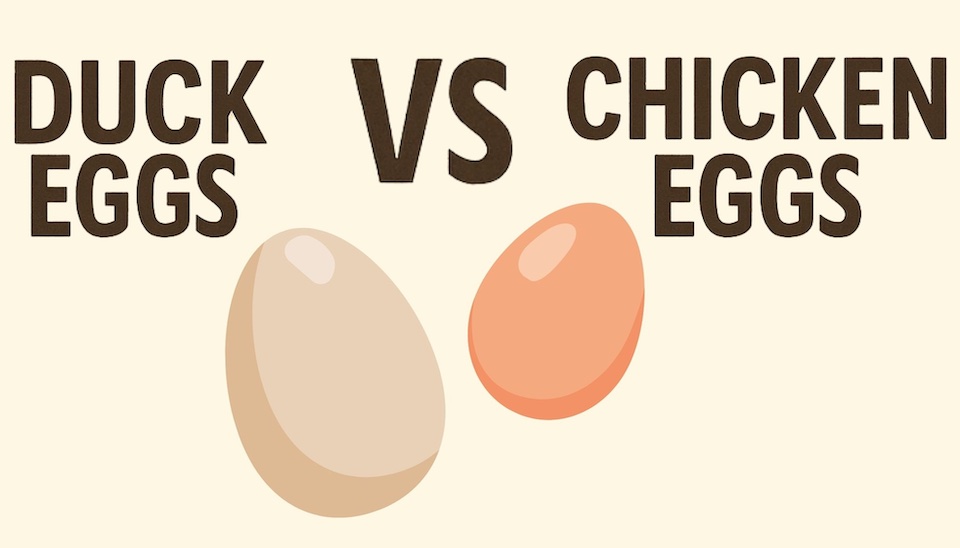Improving Feed and Water Hygiene for Chickens
When it comes to raising healthy, productive chickens, the quality and cleanliness of their feed and water are crucial. Just like us, chickens need good nutrition to thrive, and that starts with the food and water we provide. Both the nutritional value and overall quality of the feed play a big role in your chickens' health and performance.
The quality of feed is influenced by how it's treated, stored, and maintained. If these factors aren't up to par, harmful substances can sneak into your chickens' diet. We're talking about things like bacteria, soil, dust, and even heavy metals, which nobody wants in their eggs or meat.
Poor feed hygiene can also lead to spoilage caused by mould and bacteria, which, in turn, decreases the feed's nutritional value by reducing essential vitamins like A, D3, E, K, and B1.
This is where proper feed hygiene comes into play. Keeping your chickens' feed clean isn't just about avoiding the bad stuff; it's about preserving the good stuff too.
Keeping Your Chicken Feed Clean and Safe
To keep your chicken feed clean and safe, follow a few key practices.
Start with proper feed storage to minimise contamination. Whether you're buying feed or making your own, it's equally important.
Protecting feed quality isn't just about health, it's also about cost — feed makes up 65-80% of poultry production costs, so keeping it clean and nutritious is crucial. Store feed in cool, dry conditions to prevent mould and bacteria growth.
Whether you're buying feed from the store or mixing up your own at home, each option comes with its own set of challenges. Store-bought feed is often more convenient, but it can be more prone to contamination due to the large-scale handling and storage processes it goes through. However, it's worth noting that many reputable manufacturers participate in programs like FeedSafe®, which help ensure the quality and safety of their feed.
The FeedSafe® certification allows feed manufacturers to demonstrate that they meet strict legal requirements, industry standards, and customer specifications. To earn this certification, manufacturers must document how key procedures are performed, monitored, and recorded, ensuring that the feed consistently meets these high standards. This certification provides peace of mind that the feed you're purchasing has been handled with care and meets rigorous hygiene standards.
On the other hand, homemade feed might be fresher, and you have full control over the ingredients, but it requires strict hygiene practices to keep it safe. Without the controls and certifications like those provided by FeedSafe®, the risk of contamination can be higher if you're not careful.
Another important factor to consider, especially in Australia's summer heat, is how quickly feed can spoil. High temperatures can cause feed to go bad in a short amount of time, leading to potential health risks for your chickens.
Rats Cause Feed Hygiene Issues
One more thing to keep in mind is the issue of pests like rats.
Rats aren't just a nuisance — they can also contaminate your feed with droppings, urine, and diseases. Keeping your feed in secure, rodent-proof containers is a must.
If you're facing a rodent problem, check out our range of rat control solutions to keep your feed safe and your chickens healthy.
How Feed Hygiene Can Affect Your Chickens' Health
Contaminated feed can introduce harmful pathogens into your flock, leading to serious health issues that can affect both their well-being and productivity.
Key Pathogens
Several bacteria are particularly troublesome in poultry feed. Clostridium perfringens is one of the main culprits, known for causing necrotic enteritis, a severe intestinal disease in chickens. This bacterium is commonly found in ingredients like meat, bone meal and fish meal, making it a real threat if your feed isn't properly managed.
Salmonella is another dangerous pathogen, with over 2,700 serotypes that can affect both animals and humans. It's particularly notorious in eggs and poultry meat, where it can spread rapidly if not controlled.
Then there's E. coli, which can cause serious illness in poultry, especially young chicks. This bacterium often finds its way into feed, leading to outbreaks of disease that can devastate a flock.
In addition to bacteria, mould contamination is another significant risk. Moulds in feed don't just spoil the feed; they also reduce its nutritional value, leading to lower feed intake and poorer health outcomes for your chickens. Worse still, mould spores can cause respiratory diseases, and the mycotoxins produced by moulds can severely affect your chickens' performance and health.
How to Keep Feed Fresh
Given these risks, keeping your chickens' feed clean and safe is essential.
Practical Solutions for Feed Hygiene
The best defence against contaminated feed is proper storage and handling:
- Use airtight containers — This keeps moisture out and prevents mould growth
- Store in a cool, dry place — Heat accelerates spoilage, especially in Australian summers
- Buy appropriate quantities — Don't stockpile more than you can use in 4-6 weeks
- Check expiry dates — Feed loses nutritional value over time even when stored properly
- Use rodent-proof storage — Rats and mice contaminate feed with droppings and disease
Adding apple cider vinegar to drinking water (1 tablespoon per litre) is a natural way to help maintain gut health and discourage bacterial growth, though it's not a substitute for proper hygiene practices.
Making Sure Your Chickens Have Clean Water
Water is just as important as feed when it comes to keeping your chickens healthy and productive.
Unfortunately, water can become contaminated fairly quickly, especially in warm climates. The moment water is exposed to the elements, it starts attracting bacteria, algae, and other contaminants that can pose a serious risk to your flock.
How Long It Takes for Water to Contaminate and How It May Happen
In warmer climates, it doesn't take long at all for water to start going bad. Bacteria like E. coli and Salmonella can multiply rapidly in standing water, especially when the temperature rises. Within just a few hours, your chickens' drinking water can go from clean and safe to a breeding ground for harmful pathogens.
The way water is provided to your chickens also matters. Open water sources, like bowls or troughs, are more prone to contamination because they're exposed to dust, dirt, and droppings.
Even if you're using a chicken waterer that's designed to minimise contamination, it's still important to clean it regularly.
Solutions for Water Hygiene
Keeping your chooks' water clean is just as important as ensuring their feed is safe. Here are some practical steps:
- Change water daily — Fresh water every day is the simplest way to prevent bacterial build-up
- Use enclosed drinkers — Our Dine-A-Chook chicken drinkers are designed to minimise contamination from dust and droppings
- Position drinkers in shade — Warm water breeds bacteria faster
- Clean drinkers weekly — Scrub with a brush and rinse thoroughly
- Deep clean monthly — Disassemble and sanitise with a diluted vinegar solution
These simple habits can go a long way in looking after the health and happiness of your flock.
Other Tips for Keeping Feed and Water Clean
Proper storage and regular cleaning are key to maintaining hygiene and avoiding contamination.
Start by storing your feed in a cool, dry place. Moisture is a big problem when it comes to feed hygiene because it encourages mould and bacteria to grow. Using airtight containers is a great way to keep moisture out and also stop pests like rats from getting in and contaminating your feed with droppings or urine.
For water, make sure you're using waterers that minimise contamination, like our Dine-A-Chook poultry drinkers. These are designed to keep dirt and debris out of the water. Whatever type of waterer you use, it's important to clean it regularly. A good habit is to rinse and refill your water containers daily and to disassemble and deep clean them at least every few weeks.
The same goes for feeders. Empty them out and clean them regularly to prevent old feed from building up and becoming a breeding ground for bacteria and mould. Our chicken feeders are designed to make this process as easy as possible.
By combining these good storage and cleaning practices, you can significantly reduce the risk of contamination and keep your chickens healthy and productive.
Frequently Asked Questions About Chicken Feed Hygiene
How can I tell if my feed is contaminated?
If your feed is contaminated, you might notice a musty smell, clumping, or visible mould growth. Contaminated feed may also attract pests like insects or rodents. If you spot any of these signs, it's time to replace the feed.
What are the signs of mould in feed?
Mouldy feed usually has a distinct smell and an unusual appearance. You might see discolored spots or a fuzzy coating. If you suspect mould, it's best to discard the feed immediately to avoid any health risks for your chickens.
How does poor water hygiene affect egg production?
Clean water is essential for your chickens' health and hydration. Contaminated water can lead to infections and stress, which can significantly reduce egg production. To keep your water clean, consider using our Dine-A-Chook poultry drinkers that are designed to minimise contamination.
What should I do if I suspect my feed has gone bad?
If you think your feed has spoiled, the safest option is to dispose of it. Feeding contaminated or spoiled feed to your chickens can lead to serious health problems. Always store feed properly, using airtight containers to keep it fresh.
How often should I clean my feeders and drinkers?
Rinse and refill water containers daily. Give feeders and drinkers a good scrub weekly, and do a thorough deep clean at least monthly. In hot weather, you may need to clean more frequently as bacteria multiply faster in warm conditions.



